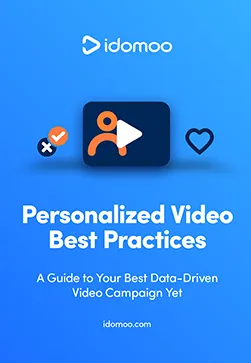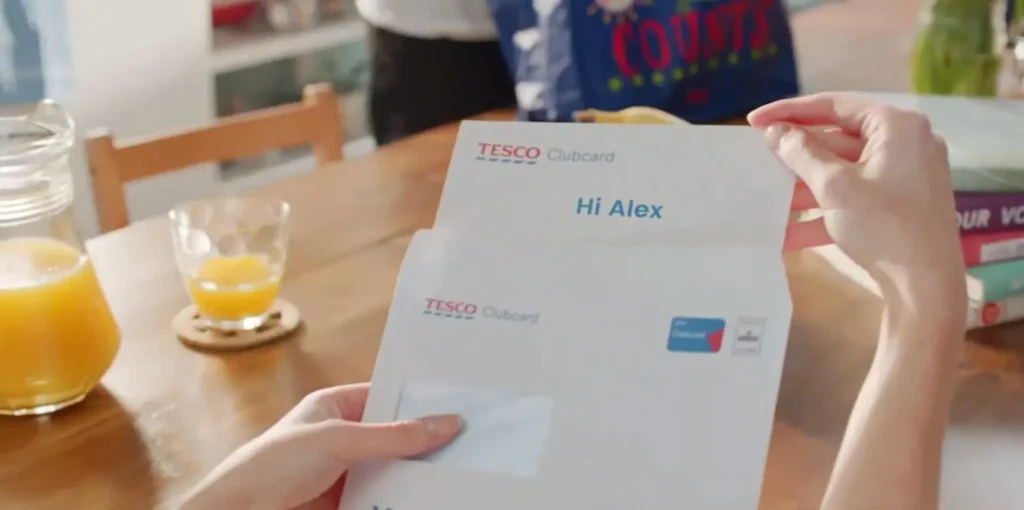Video is currently one of the hottest mediums for marketing and advertising, growing nearly 80% faster than total media overall.
Digital video ad spend in the United States alone hit an estimated $62.9 billion in 2024 and is set to increase even more over the next 4 years, reaching $112.77 billion in 2028. All of that is fueled by buyer habits, with 84% of people saying they’ve been convinced to buy a product or service by watching a video.
But with almost every brand investing in a video marketing strategy, it’s getting harder than ever to cut through the noise and engage your audience — even when you have a fantastic video on hand.
While creating high-quality content is crucial, effectively distributing videos across the right channels is how you ensure they reach and resonate with your target audience. Without a clear strategy for getting your video content in front of viewers, even the best video can struggle to make an impact.
That’s where an effective distribution strategy can make all the difference. But first, let’s look at what video marketing is.
What Is Video Marketing?
Video marketing is the use of videos to communicate with customers or prospects — and it’s a tactic embraced by most consumers. Over 8 out of 10 (83%) of people want more video content from brands, with the demand even higher when it comes to Gen Z (90%) and high earners (89%).
But while promoting your product or service with a video ad might be the first thing that comes to mind, that type of video is just the tip of the iceberg.
Video can be used to educate customers on a new product feature, onboard users to your app and even entertain your followers on social media. From product demos and onboarding tutorials to game recaps and personalized thank-you messages, the possibilities with video are endless.
Take a look at this personalized offer from Celebrity Cruises, for instance. The stunning visuals of the destination and the cruise ship work to captivate and draw you in. Meanwhile, personalized details — from the viewer’s status as an Elite Plus member to their last trip with the cruise line — make the highly targeted offer feel both exclusive and personal.
Marketing stats also point to the effectiveness of video. Adding a video to a landing page can boost conversion rates by as much as 86%. Video marketing can also boost a brand’s search engine optimization (SEO) efforts, with research showing that video can help pages rank higher on Google and other search engines by making users spend more time on the page watching the video.
In other words, the value of video is high. And luckily, creating video no longer requires as much time, resources and technical expertise as it once did. Today, thanks to AI, producing video content is faster and more accessible than ever.
Take our Enterprise AI Video solution. It streamlines the entire video creation process, from scripting and voiceovers to animations, footage and interactive calls to action. AI technology has leveled the playing field, letting companies of all sizes create professional videos quickly and affordably.
Better yet, our AI Video Creator is trained on your brand’s unique content. Since it uses retrieval-augmented generation rather than external data sources, each video aligns with your brand message and is highly accurate. Ultimately, this technology has opened the doors to efficient, scalable video marketing that was once out of reach for many businesses.
The Appeal of Video
With AI making video creation easier than ever, it’s no surprise that video has become a must-have marketing tool across industries. But why is video so compelling?
That’s because video is far more effective at grabbing the viewer’s attention and stirring their emotions than any other medium. It can even change beliefs and build trust.
In certain industries, like gaming, video can be particularly effective. Keeping players engaged is the key goal here. But with so many alternatives, especially in the free-to-play space, it’s getting challenging to do.
With video, game developers have an added tool in their retention arsenal. It can be used to showcase a player’s season highlights, recap their most epic matches or summarize their stats for them to humblebrag to their friends. Here’s an example of how Ubisoft did it for Rainbow 6 Siege.
Any player who gets this year in review will get pumped up seeing their play stats for the year. It also sets them up to continue playing to try and beat that record.
Note that effective video marketing is more than just creating a video and calling it a day. The content must provide value — whether through information, entertainment or inspiration — so that viewers feel a certain way about the brand or even feel compelled to take action.
Beyond creating videos, you also need to have an effective digital video distribution strategy. Without it, even a video with high viral potential can fall flat if it isn’t distributed strategically and doesn’t reach the right viewers.
That brings us to our next point.
What Is Online Video Distribution?
Video content distribution is where you’ll place your video so that the right audience can find it. The “where” of distribution refers to the specific channels and platforms where your video will appear.
Here are some of the best video distribution platforms for businesses to leverage:
- Your website (including the blog section)
- MMS or SMS
- Mobile app
- Social media and other video hosting platforms
Each distribution channel has unique purposes and user expectations. Placing a video type in the wrong channel can reduce its effectiveness. For example, hosting an hour-long webinar on social media (a space that prioritizes more short-form content) might not be as ideal as putting it on a landing page.
This is why you want to plan out your distribution strategy and video placement carefully, starting with defining your goal and target audience for each video and choosing the platform(s) where they’re most likely to engage. Ultimately, the right distribution strategy will make all the difference in your video’s reach and performance.
The Best Video Distribution Platforms for Business
Using the right mix of platforms and channels can maximize exposure and engagement for your videos, helping your message reach and impact the right people.
First up, let’s talk about your brand’s primary digital hub.
Your Website
Your website should always be your first host of choice. This is where people go if they want to learn more about you, making it a natural location for leveraging video.
Post on
The home page, in particular, is a powerful spot for an introduction or explainer video that gives newcomers an immediate sense of your brand, values and offerings. Beyond the home page, you can also embed videos on other parts of your website, including landing pages, product pages and blog posts, to boost engagement and conversions.
Your website can also act as the central base for other distribution channels to redirect to. Videos that are too long for email, for instance, can be hosted on your site and accessed by those with a link.
Placing your video on a landing page customized specifically for that content is a popular way to approach this. When people come from an outside source to view your video, they’ll need context on what it’s about. A landing page also allows you to place a call-to-action button so that the user knows what to do after watching.
As an example, check out this personalized acceptance video from the University of South Dakota. Now imagine a student receiving their acceptance letter with a QR code linked to a landing page that features this video.
Not only would the video add excitement to the admissions process, but the page could also provide links to essential resources for next steps, such as how to accept their admission, access financial aid info or find housing options. This approach would no doubt make a stellar first impression — exactly what a school needs to bring more students on board.
Fortunately, it’s not that difficult to design a landing page for your video. You can use a tool like Idomoo’s Landing Page Builder to create one from scratch easily. In doing so, you not only improve the viewing experience but also increase the likelihood that users will take action, making your video distribution strategy even more impactful.
Direct Messaging: Email, MMS and SMS, In-App
After your website, direct messaging channels tend to be some of the most popular distribution channels. That’s because they offer a more personal and direct way to communicate with your customers. And video can increase that engagement further.
Sending video content through email, text or in-app turns your message into a 1:1 conversation. From friendly greetings and special offers to onboarding content and renewal reminders, the big advantage here is that you can get a bit more personal since you’re connecting with someone you already have a relationship with.
This onboarding video by SelectHealth, for instance, doesn’t just welcome new members with generic info but includes specific details about their insurance plan in order to make the onboarding process more relevant and valuable.
Pro tip: We wrote a whole blog post about how to use video in your email marketing campaign. Check it out for practical strategies you can start using today.
Social Media and Video Sharing Platforms
Social media is one of the most impactful video distribution channels, capable of helping brands reach incredible levels of reach and engagement. From Facebook videos and Instagram Reels to TikTok and YouTube videos, social video is great for brand awareness campaigns that help keep your company top-of-mind or attract new prospects.
Generally, questions about which social media channel to share videos on will have Facebook as the top answer. After all, the social media giant does boast more than 3 billion monthly active users.
Facebook’s video content is diverse, ranging from humor to practical how-to content. Plus, Facebook offers powerful retargeting and a robust video ad platform, so you’ll have multiple ways to reach your audience.
Instagram, known for its visually-oriented approach, is another social platform where video dominates. Reels have become especially popular, offering a quick, dynamic way to share bite-sized content. It’s the perfect place for more creative and aesthetic videos designed to appeal to a broader audience.
As one of the fastest-growing platforms in recent years, TikTok has become a major player, especially for younger audiences. Filled with fast-paced, entertaining videos, this platform is known for its highly tailored and accurate “algorithm” that pushes content to users based on interactions and interests.
Finally, while not traditionally video-centric, LinkedIn and X (formerly Twitter) are also viable choices for video distribution. LinkedIn is ideal for B2B video marketing, especially for sharing thought leadership, industry updates or testimonials. X, on the other hand, works well for quick, engaging videos that can be shared easily, such as short product teasers or event highlights.
Whichever social media platform you choose, a great strategy to try is to repurpose your content across platforms. This involves taking a long-form video and chopping it up into smaller segments, giving you far more flexibility in their placement, whether for an ad or a Facebook post. You also cut down on production time since you don’t need to reshoot videos from scratch.
You can take social media video marketing one step further with Idomoo’s Dynamic Video Ads. With it, you can dynamically change the content of the video to tailor it to the viewer’s interests and demographics.
Here’s an example from a dynamic video Facebook ad by Trivago, which highlights different goals depending on the user. For instance, if they’re parents, the phrase “Looking for a family getaway?” appears. But if the viewer is single, the ad asks, “Looking for an awesome holiday?” instead.
Tailoring your message to specific audiences can significantly improve customer engagement and create a more memorable viewer experience — which brings us to our next topic.
Why Use Personalized Videos?
Narrowing your video to the customer segment, as shown in the ad above, is definitely effective. We’ve seen a 5x uplift in CTR and a 7x return on ad spend with Dynamic Video Advertising.
However, personalization takes it one step further. Instead of tailoring a video to a market segment, it can be customized for the individual.

A Personalized Video has the potential to skyrocket engagement. After all, a video that mentions a person’s name and displays data unique to them will not only grab their attention but deliver real value through relevancy.
Imagine receiving your first monthly bill and getting a personalized bill explainer like this one from BT. Instead of having to face that bill alone, you’re greeted by friendly faces who offer a visual breakdown of the charges, providing immediate value and support while fostering trust.
Think about how impactful this approach could be in more complex decision-making scenarios too.
For instance, most customers shopping around for home refinancing options would find it tiresome to dig for rates or sit through lengthy pitches. What if, instead, they could be presented with a video quote that’s not only personalized but interactive? Try it below. You can input your own numbers to play with the calculator and see what offers are available.
Even routine interactions, such as upselling or cross-selling, can benefit from a personalized touch. This is what Vodafone did with their hugely successful Personalized Video campaign. By tailoring the message to the individual, the brand made its offer much more relevant, exclusive and, therefore, attractive.
Personalized Videos are a game-changer in that they don’t just capture attention but hold it by speaking directly to the viewer’s needs and preferences. This level of relevance and immediacy makes Personalized Video a high-impact strategy, one that can effectively improve customer loyalty and boost conversions.
Idomoo Has the Next Gen Video Solution You Need
Video personalization is at the heart of what Idomoo does. Our open platform (with lots of built-in integrations and robust APIs) allows marketers to dynamically insert data into video content that is then rendered on the fly.
This process ensures that each video displays only the most up-to-date, accurate information for viewers. The result? An experience that feels personal, timely and relevant every time.
Our platform is purpose-built to handle Personalized Videos at scale, capable of rendering millions of videos 100x faster than real time, without sacrificing quality. And with enterprise-grade data security, your audience’s information remains protected while you deliver a powerful, data-driven video experience.
But we don’t just stop at personalization. At Idomoo, we’re pushing the boundaries of what video can achieve. We call it Next Generation Video and it includes personalization, as well as real-time interactivity and updates based on current data. Video can now be a unique, engaging and evolving experience that makes a high impact by adapting to each viewer’s needs.
Idomoo prides itself as one of the most innovative video distribution companies driving the future of video forward. Contact us today to learn more about how our video platform has served the top companies worldwide in industries as diverse as utilities, banking and higher education.






